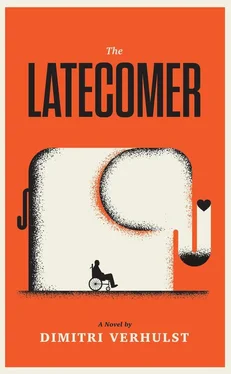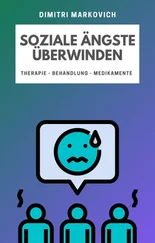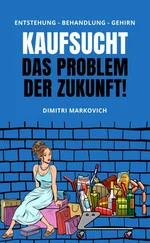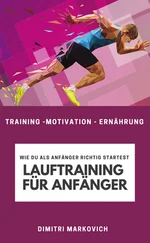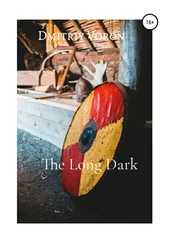The first train I saw turned out to be going to Liège and that suited me just fine. During my military service I was once taken to the military hospital in Liège. Which sounds more dramatic than it was. A simple sprain. A blue, swollen ankle, nothing more. But the army medical corps must have needed people to practise on, so the sergeant had me hospitalised as a so-called precautionary measure. If this meant a temporary respite from idiotic drill exercises on damp mornings, I could only be grateful for the sergeant’s decision — and that was just what it meant. I spent four days in Liège in a private room, liberated from the stench of the barracks. For purely symbolic reasons, they put a thermometer under one arm and took my blood pressure at regular intervals. And otherwise I could relax, away from the foul language and coarse stupidity the guys in my unit excelled at. No rifle range, no terrifying theory lessons on the nuclear menace. Simply four days of rest and … reading! From my room I had a view of the valley and the completely unknown city that filled it. I didn’t set foot in its streets, apart from walking from the hospital to the train station, which I did the day the chief physician declared me fit and healthy enough to resume my defence of the country and sent me back to the barracks, but I still managed to build up a certain connection, a certain familiarity — liking, even — for all the houses and roofs I had looked out over during those four relaxed days, and resolved to return sometime after I’d completed my military service. This city, I readily convinced myself as a melodramatic young man, had something to say to me.
I must have forgotten to keep an eye on the time and now, all of a sudden, I was decrepit. My promise to myself to return at least once to that passionate city on the Meuse had proved empty. This train could never arrive on time, but at least it could provide some slight compensation. Unless, of course, I encountered an inspector who was overflowing with professional pride, a jobsworth who would get his jollies out of showing the door to an innocent old codger who didn’t have a valid ticket.
But nobody was displaying an exaggerated work ethic that day, not an inspector in sight, and three and a half hours after wandering out of Azalea Street in my slippers, I was standing on the platform of Gare Liège Guillemins, which in no way resembled the station I had left in my army uniform. A modern, architectural pearl that I had read about but was only now seeing with my own eyes. If God was a train, this station would be His cathedral.
A highly promising start to a reunion.
And perhaps that was why I abruptly changed plans, to make sure I didn’t embarrass that promise. The high-speed train to Frankfurt caught my eye. Having plans wasn’t a good idea anyway and could only undermine faith in my dementia. So tally-ho, onto the Frankfurt train, quick march, before the doors closed! This time I wouldn’t have long to wait before someone asked to see my ticket. It was inevitable: an international train, a first-class compartment! Sparks would fly and that evening the police would once again deliver a confused man back to Azalea Street.
It proved effective: I didn’t get to see Frankfurt either.

I’m crossing the Styx and taking: a tube of toothpaste (just for a joke), a stray Joseph Roth quote, the wondrous memory of an ardent kiss I never got, bread crumbs, greater solace than a good Berliner ever offered me, a stanza of ‘Auntie Bonanza’ …

Bingo, I did it! I flunked my test with flying colours, the MMS examination feared by so many of the forgetful. It was such a relief I had to restrain myself from leaping with joy in the doctor’s surgery. Surely there could be no finer accolade for acting than officially diagnosing the simulator of dementia as a dementia patient! To have a medically qualified person declare him mentally incompetent and begin preparing the paperwork that will have his driving licence revoked and strip him of the ability to carry out his own financial transactions! Providing him with the properly stamped and initialled forms that will ensure he won’t need to vote at the next election, and handing his wife information sheets and brochures from specialised care homes!
Champagne!
At home my wife and children had already started talking about me in my presence as if I wasn’t there. Whether it was a dog or their father sitting in the living room, it no longer made any difference. Charlotte had insisted on taking me to a doctor, deploying the most artful of rhetorical devices to convince her dear mother that, no matter how much I had tended to wool-gather in the past, eating unpeeled bananas could not be taken as a sign of mental health.
Did she realise that there was already a story going around Azalea Street and its immediate environs that she was denying her sick husband proper care?
My daughter didn’t need to say another word. The winning argument had been deployed and a week later the two of us were in the surgery of Dr Vancleemput, specialist in human cerebral mush.
It’s difficult to say what I found the most stressful: passing my finals as a librarian or, fifty years later, failing my Mini-Mental State Examination, the last but possibly most daunting hurdle I had to clear. Because how, for heaven’s sake, was I going to deceive science? How could I convince a doctor that I was a ghost ship adrift at sea?
As it turned out, more easily than I could possibly have imagined. Simply because the science was not that advanced. In my nightmares I had seen myself in a hospital with all kinds of helmets fixed to my skull with wires and pins and I don’t know what else — miracles of progress that would flip the secrets of my brain onto the table like an ace of trumps. My wife had also pushed for an investigation that was more sophisticated than any that had been carried out so far. A brain scan was the absolute minimum as far as she was concerned. However, as the doctor assured us, there were lots of things a scan could show you, but not dementia! Tumours, a thrombosis, or hypothyreosis — yes, scans were extremely useful for all those things. But a condition like Alzheimer’s still flew under the medical radar.
It helped that Dr Vancleemput had dropped in words like ‘hypothyreosis’, otherwise Moniek would undoubtedly have questioned her expertise and demanded she trot out her diplomas as proof she had actually completed some kind of training.
But still. Couldn’t she have drained off a litre of blood to let a laboratory decide one way or another? Or excised a piece of flesh from a buttock to study under the microscope?
‘It is possible, Mrs De Petter, that tomorrow, or next week, we’ll be further advanced than we are today. People are hard at work. But at the moment neither a blood test nor any kind of radiological process can provide a clear diagnosis. The only thing we have at our disposal right now is the MMSE score.’
‘This infantile test, you mean?’
‘If you like …’
Infantile was the right word. I had to answer a few silly questions, say what the date was, which season it was, which country we lived in and which town. Then I had to remember a few idiotic words: tree, carrot and lamp . She formulated a far from elegant sentence, asked me to repeat it, then had me spell the word world backwards. One of the tasks was written on a sheet of paper, namely, ‘Fold this piece of paper and slide it under one leg of your chair.’ Really, some of the tests were so undemanding for a creature that prides itself on its one and a half kilos of cerebral sludge that I scarcely dared to answer all the questions incorrectly or fumble over the tasks. I needed to be careful not to betray myself by aiming for a disproportionately low score. It was only when I reached the last task, copying a picture of two interlinked pentagons, that I found something genuinely difficult.
Читать дальше
